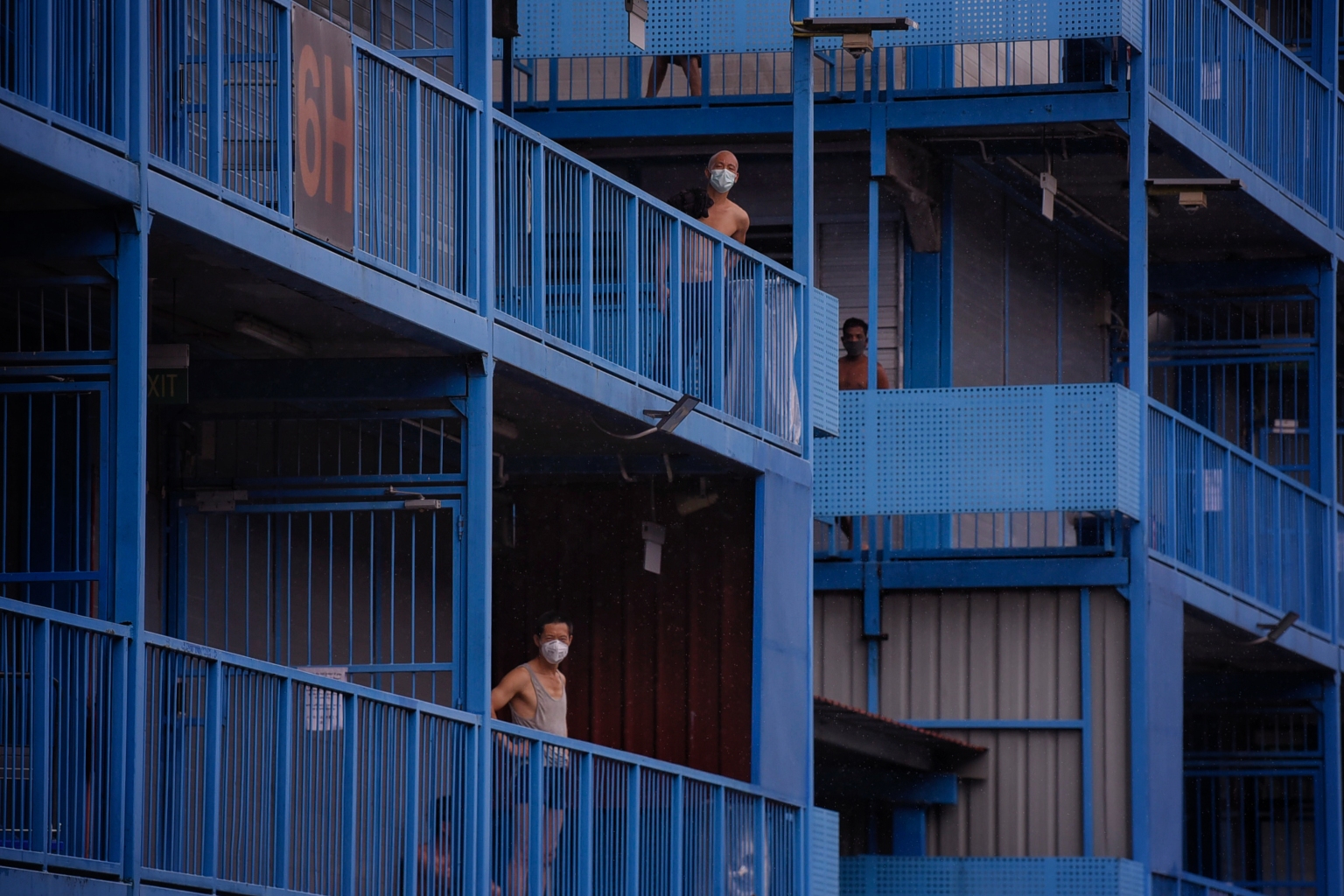New facilities to be built for workers in dorms who have recovered from Covid-19 or have mild symptoms
Sign up now: Get ST's newsletters delivered to your inbox

Health monitoring equipment is also being set up to help workers keep track of their own health.
ST PHOTO: MARK CHEONG
SINGAPORE - New facilities will be built to house migrant workers who are mildly ill or no longer infectious, many of which will be located in dormitories that have been most severely affected by the coronavirus outbreak.
Health monitoring equipment is also being set up to help these workers keep track of their own health, the Manpower Ministry said in a statement on Friday (May 1).
In addition, the inter-agency task force handling the outbreak in dormitories will designate specific blocks where workers who have recovered from the virus can return to.
It will also build new dormitories to house some of the healthy and recovered workers.
At a press briefing on Friday, Permanent Secretary for Manpower Aubeck Kam said these measures constitute the third phase of the plan to tackle the situation at dormitories.
Community care facilities will be set up in the most affected dormitories and confirmed Covid-19 patients with mild symptoms will be moved there rather than to an offsite medical facility, he said.
Similar community recovery facilities will also be set up onsite, where patients who are no longer infectious can be transferred.
Blocks for recovered workers will be thoroughly disinfected before the workers move in, he added. Those living in these blocks must observe strict safe distancing measures and will not be allowed to interact with residents in other blocks.
Meanwhile, the strategy for less affected dormitories involves a combination of measures, such as aggressive swabbing and isolation.
Rehousing workers will be an enormous challenge but is necessary to minimise the risk of recurring transmission, Manpower Minister Josephine Teo said at a press conference following the briefing.
"Many workers will be rehoused and will have to get used to new friends. Many employers will have to adjust to workers being in different locations with new arrangements," she said.
Worksite arrangements will also have to change, and the Government must consider how workers can be kept safe if or when they are ready to resume work, she added.
Brigadier-General Seet Uei Lim, Chief Guards Officer in the Singapore Armed Forces who is in charge of the task force, also gave an update on the situation.
A total of 170 forward assurance and support teams have been deployed to dormitories and medical infrastructure has been set up in all 43 purpose-built dormitories, he said.
Two regional medical posts have been set up at recreation centres in Kranji and Tuas South, with two more upcoming in Woodlands and Kaki Bukit.
More than 25,000 foreign workers have been tested to date, with more than 18,000 beds for isolation and care set up and another 23,000 in the pipeline.
Pulse oximeters, which measure a person's blood oxygen levels and heart rate, will be deployed at dormitories with workers encouraged to seek help if their readings are abnormal.
Workers will also be able to consult doctors via WhatsApp video calls, with medication delivered to dormitories if necessary.
National Development Minister Lawrence Wong, who co-chairs the task force tackling the outbreak, said it would be premature to assume that once Singapore is past this particular wave, life will resume and the country will be free of the virus by June or July.
"No one can say that," he said, adding that experts are concerned that a future wave may coincide with the flu season, with worse results.
Singaporeans will still need to remain vigilant even after this wave has been tackled, Mr Wong added.
"It only takes one case - one hidden case, one cryptic case - to cause new clusters to form," he said. "This can happen in Singapore and in any country, so do not be too early to declare the end of infection in Singapore or anywhere in the world."


